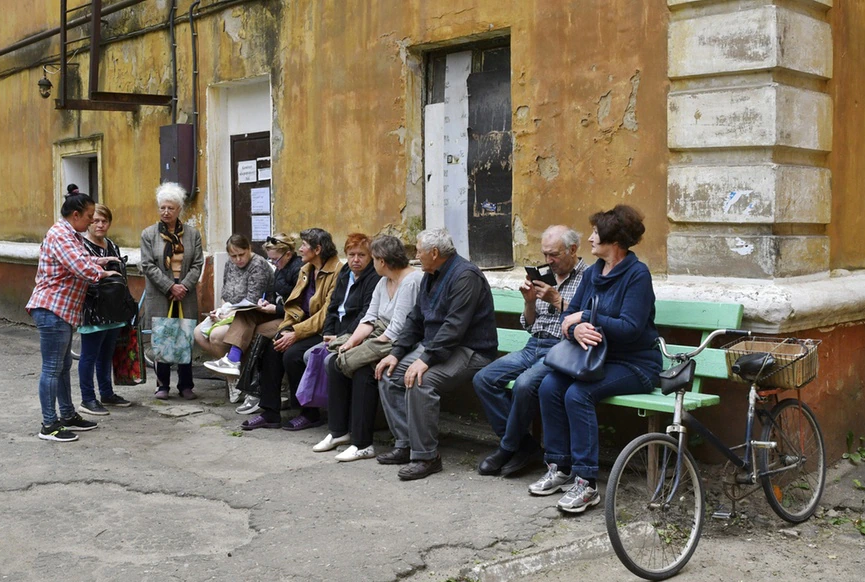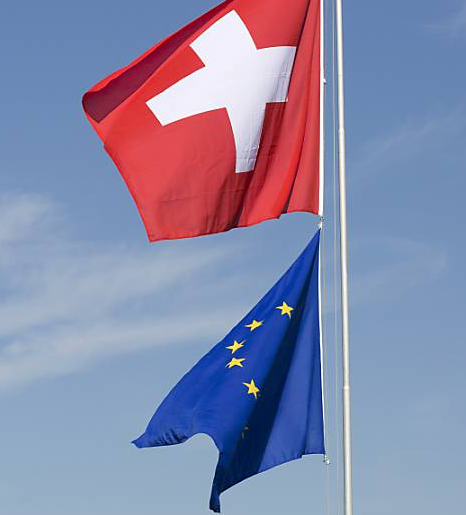People wait to receive humanitarian aid in Kramatorsk, Ukraine, on May 28, 2022. Copyright 2022 The Associated Press. All Rights Reserved. Despite record public donations for Ukraine, four months since the start of the invasion by Russia, Swiss aid agencies have only been able to spend a small amount of the funds on humanitarian work. An investigationExternal link by the SonntagsZeitung newspaper published on July 10 has revealed that Swiss Solidarity, the Swiss Red Cross, Caritas and Helvetas received CHF185 million from the general public to help the victims of the war in Ukraine. However, only CHF23 million have been spent directly in Ukraine so far. Another CHF7 million have been used to help Ukrainians who fled to neighbouring countries and refugees in
Topics:
Swissinfo considers the following as important: 3.) Swissinfo Business and Economy, 3) Swiss Markets and News, Featured, newsletter, Politics
This could be interesting, too:
Investec writes The Swiss houses that must be demolished
Claudio Grass writes The Case Against Fordism
Nachrichten Ticker - www.finanzen.ch writes Die Performance der Kryptowährungen in KW 9: Das hat sich bei Bitcoin, Ether & Co. getan
Nachrichten Ticker - www.finanzen.ch writes Wer verbirgt sich hinter der Ethereum-Technologie?

People wait to receive humanitarian aid in Kramatorsk, Ukraine, on May 28, 2022. Copyright 2022 The Associated Press. All Rights Reserved.
Despite record public donations for Ukraine, four months since the start of the invasion by Russia, Swiss aid agencies have only been able to spend a small amount of the funds on humanitarian work.
An investigationExternal link by the SonntagsZeitung newspaper published on July 10 has revealed that Swiss Solidarity, the Swiss Red Cross, Caritas and Helvetas received CHF185 million from the general public to help the victims of the war in Ukraine.
However, only CHF23 million have been spent directly in Ukraine so far. Another CHF7 million have been used to help Ukrainians who fled to neighbouring countries and refugees in Switzerland.
Swiss Solidarity told SonntagsZeitung that, in addition to security risks, the capacities of partner organisations in Ukraine pose a challenge. One of the main difficulties is recruiting qualified local staff locally, as “many people have fled”.
The problem is widespread. This month it was reportedExternal link that over CHF2.4 billion had been donated in various countries to Ukraine-related humanitarian response efforts since February. But a recent reviewExternal link by Humanitarian Outcomes concluded that about 85% is being held by international aid organisations who are scarcely present in Ukraine and have yet to spend the majority of the money.
The report found that despite “informal” Ukrainian volunteer groups and NGOs providing “virtually all” humanitarian aid, they have received only 0.24%External link of the direct donations to Ukraine.
There are about 2,000 Ukrainian NGOs active in the aid effort, 1,700 of which registered after Russia’s full-scale invasion. There are also thousands of informal volunteer groups, usually acting within their communities, says Humanitarian Outcomes.
The report showed that internal compliance requires recipients to be trained in certain principles and standards, which can take months. It also found that physical risks to staff and a lack of contingency plans before the invasion has meant that international organisations are only just beginning to work in Ukraine and their operations remain small-scale.
Tags: Featured,newsletter,Politics








